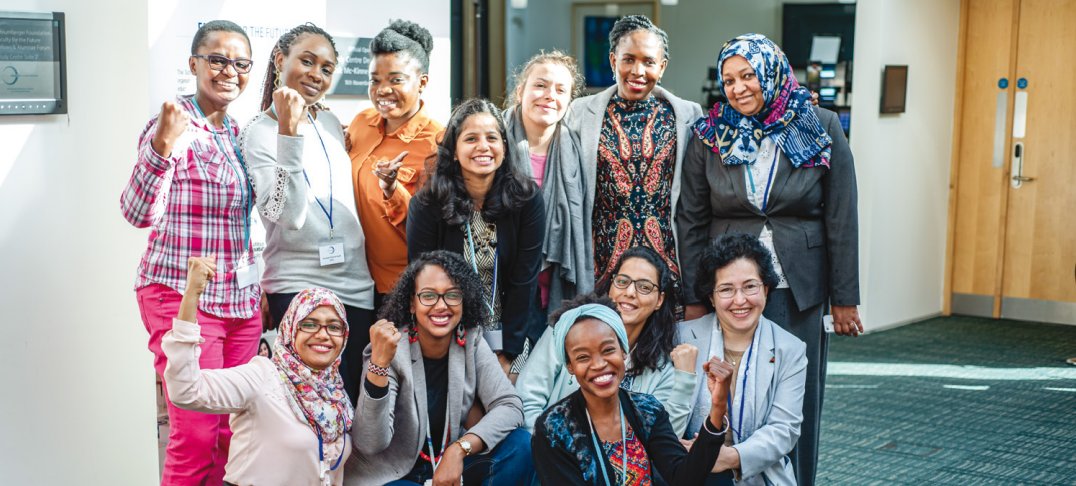
2024 Faculty for the Future Awards for Women in STEM
The Schlumberger Foundation announces its Faculty for the Future fellowship award recipients for women from developing and emerging economies to pursue post-graduate studies in science, technology, engineering, and mathematics (STEM) disciplines at leading institutions around the world. For the academic year 2024–2025, fellowships have been awarded to 53 new recipients and renewed for an additional academic year to 86 grantees, demonstrating the Foundation’s dedication to reducing the gender gap in STEM.
“Our consistent efforts to reach out to prospective candidates from eligible countries where the program is still non- or under-represented, are showing. This year, of the 53 new grantees, 12 come from countries where the Faculty for the Future community has less than five members, of which three are new countries where no award has ever been granted in the past: Niger, Gabon, and Guinea-Bissau,” says Roseline Chapel, President, Schlumberger Foundation.
The top research domains of this year’s awardees are engineering, climate and environmental sciences, biological sciences, and health sciences. The Fellows, committed to returning to their native countries or regions on completion of their overseas studies, are concentrating on topics related to resolving issues faced by their communities back home. Exploring areas aligning with the world’s key priorities set by the United Nations through the Sustainable Development Goals, the research of the Faculty for the Future grantees is to contribute to the global effort to build a more sustainable future for the next generations.
“Our emphasis has remained on selecting candidates who embody highly successful scientists, and robust leaders who will act as change agents in their countries. The high-quality applications received this year went through a rigorous and thorough selection process, confirming the excellence of the new awardees. Witnessing the numerous barriers some candidates had to overcome to pursue their passion is remarkable; by welcoming them into the community, the fellowships alleviate the costs of higher education and help the award recipients reach their full potential as visible role models,’’ Chapel continues.
This new round of awards demonstrates the Schlumberger Foundation’s long-term commitment towards building a community of highly qualified role models who can help narrow the gender gap in STEM disciplines by inspiring more women to study in STEM. Fellowships are awarded based upon an applicant’s academic ability, leadership qualities and engagement in STEM outreach activities in under-served communities in their countries of origin. With support from the Schlumberger Foundation, Fellows have achieved academic excellence throughout their studies, often despite considerable cultural, geopolitical, environmental, or economic challenges.
“As we continue to focus on improving conditions for home return of our grantees, several initiatives have been developed to ensure they will remain tied to their communities of origin while pursuing international studies. This involves improved availability of scientific equipment, easier access to international scientific journals and publications, and a return grant supporting their journey home. More than ever, our commitment to STEM education contributes to solving contemporary challenges for years to come,” Chapel adds.
